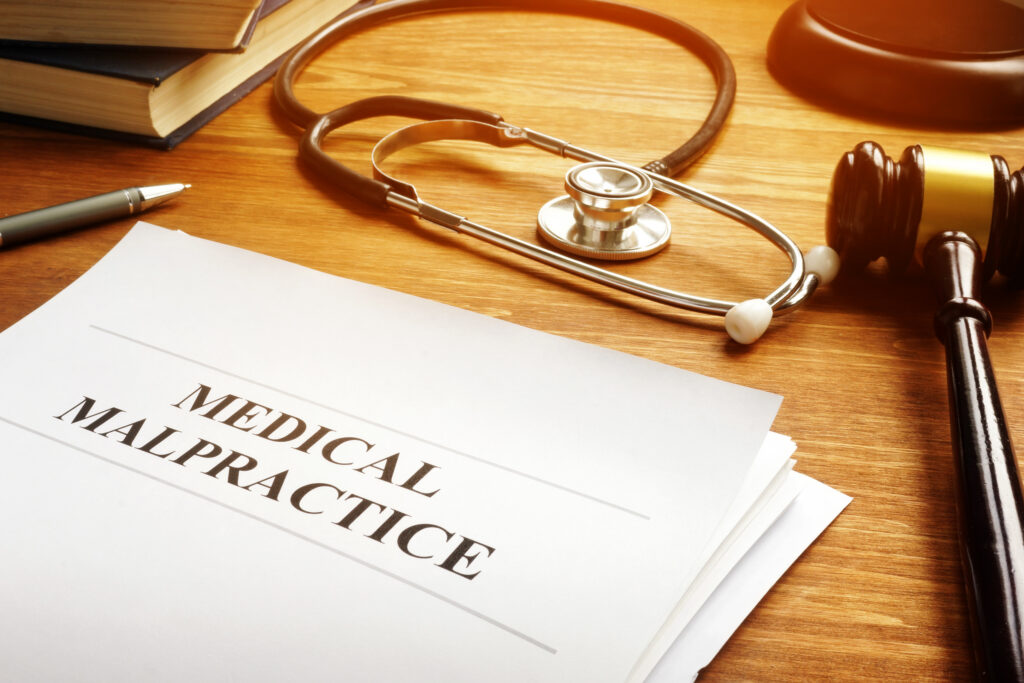When you seek medical care, you trust that your healthcare providers will work together to give you safe, coordinated treatment. However, many patients in Pennsylvania experience harm due to disjointed, fragmented care — where critical communication between providers breaks down. In these cases, patients may suffer serious consequences like delayed diagnosis, medication errors, or worsening conditions.
If you’ve been affected by poor care coordination, you may have legal grounds to file a medical malpractice lawsuit. Under Pennsylvania law, a lack of continuity of care can be considered negligence if it results in harm. This article explores how such claims work, what evidence is needed, and how to take legal action.
What Is Continuity of Care?
A Definition in Healthcare Terms
Continuity of care means that a patient’s treatment is consistent and well-coordinated across different healthcare settings and providers. Ideally, your primary care doctor, specialists, hospital staff, and other medical professionals should all be communicating and working from a shared understanding of your health history and treatment plan.
When Continuity Breaks Down
In reality, this doesn’t always happen. Medical records may not be shared. Specialists may fail to update primary care physicians. Critical test results might be delayed or never delivered. When these lapses occur, the patient’s care becomes fragmented — and that’s when mistakes happen.
Why Continuity of Care Matters in Pennsylvania
Patient Safety Is at Risk
A lack of coordination isn’t just a paperwork problem — it’s a real risk to patient safety. Poor transitions between hospitals and home care can result in missed medications, duplicated tests, or delayed treatments. These errors can cause long-term harm, hospital readmissions, or even death.
Legal Accountability for Poor Communication
In Pennsylvania, medical providers have a legal duty to meet the standard of care, which includes proper communication with other healthcare professionals. Failing to do so can form the basis of a negligence or malpractice lawsuit.
Examples of Fragmented Care That May Lead to Lawsuits
To better understand how these cases occur, consider these real-life scenarios:
1. Missed Communication Between Providers
A cardiologist diagnoses a heart condition but never communicates that diagnosis to the patient’s primary care physician. The patient, unaware of the issue, suffers a heart attack weeks later.
2. Poor Hospital Discharge Coordination
A patient is released from the hospital without discharge instructions or follow-up care referrals. No one monitors their recovery. The patient’s condition worsens due to lack of supervision.
3. Conflicting Medical Advice
A patient sees multiple specialists, each prescribing different medications that interact dangerously. Because no one is coordinating care, no one notices the risk until the patient is hospitalized.
Each of these examples could be grounds for a continuity of care lawsuit in Pennsylvania, especially when harm results.
Can You Sue for Lack of Continuity of Care in Pennsylvania?
Yes — If Harm Can Be Proven
Pennsylvania medical malpractice laws allow patients to sue when negligent care leads to injury. This includes cases where poor communication or a lack of coordination directly results in harm. However, not every communication failure is automatically a lawsuit. You must show that:
- A duty of care existed (e.g., a patient-provider relationship)
- That duty was breached (through miscommunication or poor handoff)
- The breach caused harm (like a worsened condition or delayed diagnosis)
Who Can Be Held Responsible?
In fragmented care cases, multiple parties may be liable — hospitals, individual physicians, specialists, or even health systems. Pennsylvania law allows you to name multiple defendants in one lawsuit if each played a role in the breakdown of care.
Understanding Pennsylvania Medical Negligence Law
What Is Considered Negligence?
Medical negligence occurs when a provider fails to follow accepted medical practices and that failure causes harm. In the context of continuity of care, this could include:
- Not sending critical records or test results to another provider
- Failing to provide discharge instructions
- Not coordinating follow-up care
- Assuming another provider is responsible for patient monitoring
Statute of Limitations in PA
Pennsylvania allows patients two years from the date the injury occurred — or from the date they reasonably discovered it — to file a lawsuit. This makes timely documentation and legal consultation essential.
Common Causes of Poor Care Coordination
Systemic Problems in the Healthcare System
Many causes of poor care continuity stem from system-wide issues like lack of shared electronic health records, unclear responsibilities between departments, or staffing shortages. However, just because the system is broken doesn’t excuse negligence.
Specific Examples in Pennsylvania Hospitals
- ER doctors failing to alert primary physicians of urgent cases
- Specialists not relaying findings back to referring doctors
- Nurses assuming follow-up care is someone else’s responsibility
- Patients being discharged with incomplete records or incorrect medications
Each of these examples can serve as a basis for legal claims if they result in harm.
What Evidence Do You Need to File a Lawsuit?
To bring a continuity of care lawsuit in Pennsylvania, your legal team must demonstrate both negligence and harm. You will need:
1. Medical Records
Full documentation from every provider involved in your care is crucial. These records may reveal where communication failed or who had responsibility for your follow-up.
2. Expert Medical Testimony
Pennsylvania law requires that a licensed medical expert verify that the standard of care was breached and that the breach caused harm. This is a critical part of any malpractice claim.
3. Documentation of Harm
Your legal case must clearly show that you experienced measurable injury or loss, such as a worsened condition, longer recovery time, emotional distress, or financial costs from additional treatment.
What Compensation Can You Recover?
In a successful Pennsylvania medical negligence lawsuit, you may be eligible for several types of damages:
Economic Damages
These include tangible losses like:
- Medical bills for additional treatment
- Lost wages due to missed work
- Rehabilitation or long-term care expenses
Non-Economic Damages
These cover more personal losses such as:
- Pain and suffering
- Emotional trauma
- Loss of enjoyment of life
Punitive Damages
In rare cases of extreme negligence or reckless conduct, Pennsylvania courts may award punitive damages to punish the wrongdoer and deter similar actions in the future.
What to Do If You’ve Been Harmed by Poor Medical Coordination
If your health has worsened due to miscommunication between your providers or lack of proper handoff during care transitions, you may be eligible to file a medical malpractice claim. Take these steps immediately:
- Request all your medical records.
- Create a written timeline of your treatment and symptoms.
- Identify any moments where communication failed.
- Contact a Pennsylvania medical malpractice attorney to evaluate your case.
Frequently Asked Questions About Continuity of Care Lawsuits in Pennsylvania
Can I sue my doctor if they didn’t communicate with a specialist?
Yes, if that failure to communicate led to a delay in treatment, misdiagnosis, or other medical harm, you may have grounds for a medical negligence claim in Pennsylvania. The legal system recognizes that timely and accurate communication between providers is essential for safe and effective care. If your condition worsened because your primary doctor didn’t coordinate with a specialist or failed to relay crucial information, that lack of communication could be seen as a breach of the standard of care.
What if I was discharged from a hospital without follow-up instructions?
If you were sent home from a hospital without proper discharge instructions, referrals, or guidance for continuing your care, and this led to medical complications, you may be eligible to pursue a lawsuit. Hospitals are legally responsible for ensuring patients have a safe and informed transition out of inpatient care. A rushed or poorly handled discharge that results in injury or delayed recovery may be considered negligent under Pennsylvania law.
Do I need to prove that the lack of continuity caused me harm?
Yes, proving harm is essential in any medical malpractice case, including those based on fragmented or uncoordinated care. It’s not enough to show that your doctors failed to communicate — you must also show that this failure directly caused your condition to worsen, led to additional treatment, or caused unnecessary pain and suffering. Medical records, expert testimony, and a detailed timeline of your care will be critical in demonstrating this link.
How long do I have to file a lawsuit in Pennsylvania?
Pennsylvania’s statute of limitations for medical malpractice is generally two years. This time period usually begins on the date the injury occurred or from the date you reasonably discovered (or should have discovered) the injury. However, this timeline can vary based on the specifics of your case, especially if minors are involved or if the injury was not immediately apparent. Because of these nuances, it’s important to speak with a lawyer as soon as possible to avoid missing your filing window.
Can more than one provider be held responsible in a lawsuit?
Yes, if multiple healthcare professionals or institutions were involved in the failure to provide coordinated care, more than one party can be named in a lawsuit. Pennsylvania law allows for shared liability, meaning each negligent party can be held responsible for their role in the harm you suffered. A skilled malpractice attorney can help identify every entity or individual that contributed to the breakdown in care.
Final Thoughts: Holding Healthcare Providers Accountable
You deserve consistent, well-coordinated medical care. When that care falls apart — and you suffer because of it — the law offers a path to justice. Filing a continuity of care lawsuit is not just about recovering damages; it’s about ensuring that hospitals and providers take patient safety seriously.
You shouldn’t have to suffer because your medical team didn’t communicate. If you’ve experienced a lack of continuity in care and your condition worsened, don’t wait. The sooner you act, the stronger your case.
Contact Purchase, George & Murphey, P.C. Today
If your care was fragmented, your diagnosis delayed, or your condition worsened because healthcare providers failed to coordinate, legal action may be your next step. Pennsylvania law is on your side — but time matters.
Contact Purchase, George & Murphey, P.C. today for a free consultation. A qualified lawyer can review your case, explain your options, and help you fight for the compensation and justice you deserve.














